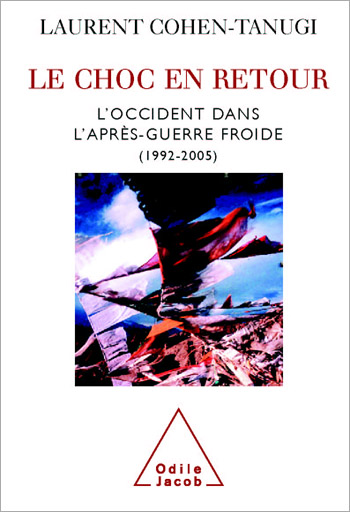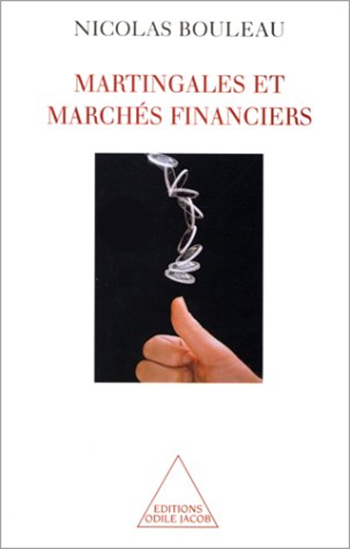Economics and Finance All books
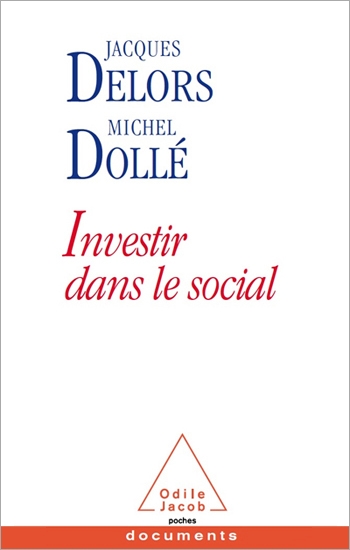
Jacques Delors, Michel Dollé
Investing in Social Issues
Jacques Delors offers a new vision of the welfare state, adapted to the challenges and difficulties of the present...
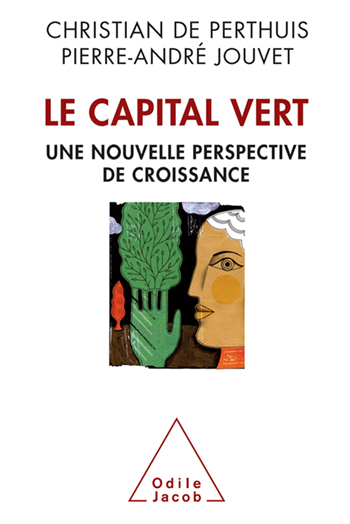
Christian de Perthuis, Pierre-André Jouvet
Green Capital
The indispensable book to understand the green economy and boost economic growth
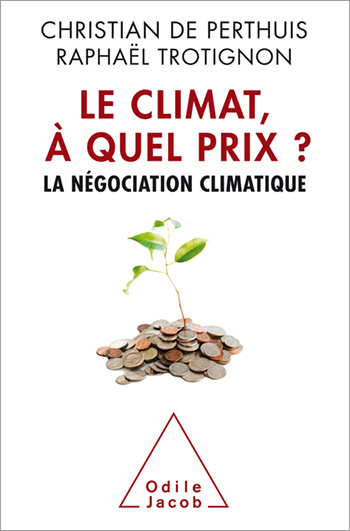
Christian de Perthuis, Raphaël Trotignon
Climat, how much ? Climate Negotiations
Global warming: understanding, anticipating, taking action
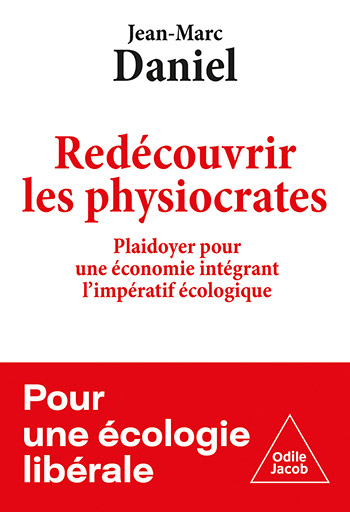
Jean-Marc Daniel
Rediscovering Physiocrats A Plea for an Economy that Integrates the Ecological Imperative
Contrary to popular belief, the economy and ecology are not enemies. They arose together, as reflected by the physiocratic heritage.
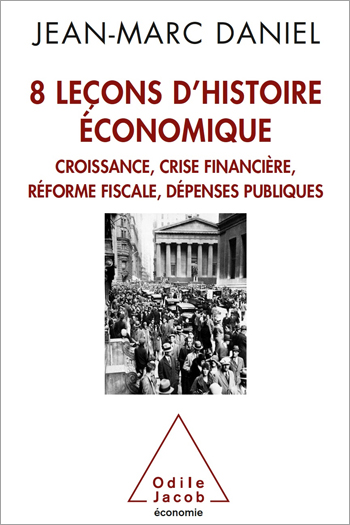
Jean-Marc Daniel
8 Lessons in Economic History
A masterly lesson in economics based on history and examples
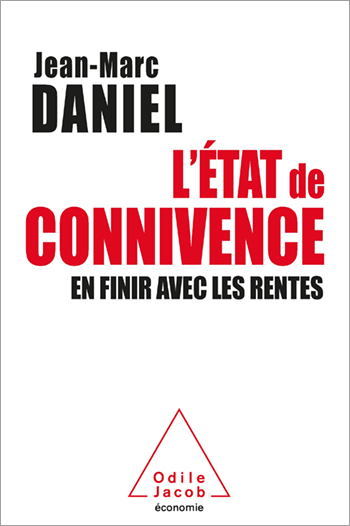
Jean-Marc Daniel
The State of Connivance Abolishing Rentier Capitalism
How to make the transition from rentier capitalism to competitive capitalism?
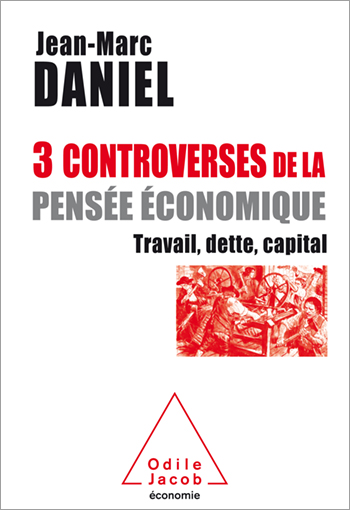
Jean-Marc Daniel
3 Arguments in Economic Thinking Work, public debt, capital
Work, capital, time: three key notions in economics, three arguments central to economic thinking
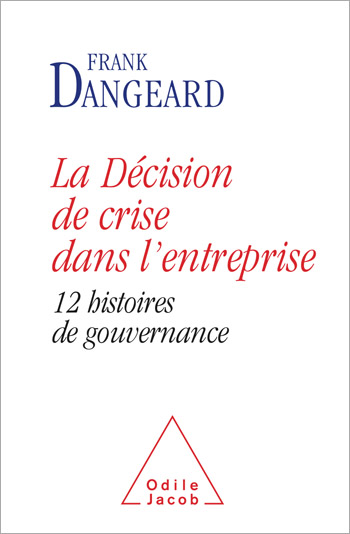
Frank Dangeard
Crisis Decision-Making in Businesses 12 Tales of Governance
Based on his extensive experience as a manager and administrator, and illustrated with numerous examples from recent business history...
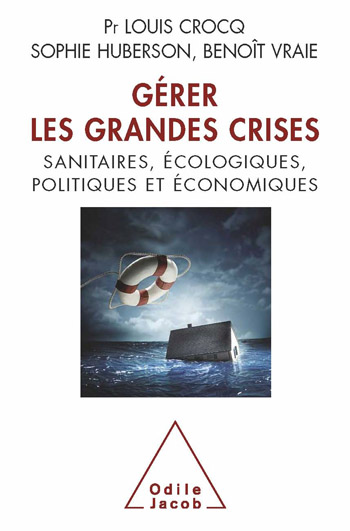
Louis Crocq, Sophie Huberson, Benoît Vraie
Managing Crises
In the existence of any group, business or nation, a crisis is a serious, uncommon event that suddenly imposes an emergency situation and the management of the vital issues at stake.
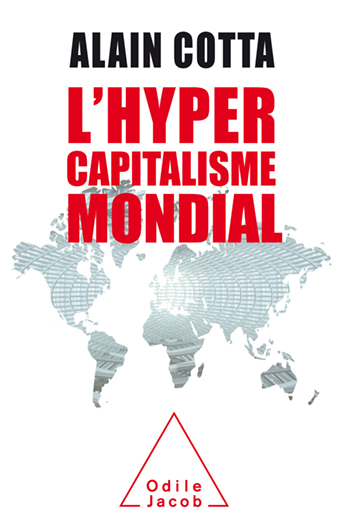
Alain Cotta
Global Hypercapitalism
Erudite and original, this book presents a true portrait of the “Dynamics of hypercapitalism,” tracing its lines of strength. It is also a denunciation of the elites and of their oligarchical power, exercised on the middle classes.

Martin Collet
Is Taxation Confiscation?
Who should decide on the legitimacy of taxation? The Law’s reply to a social issue
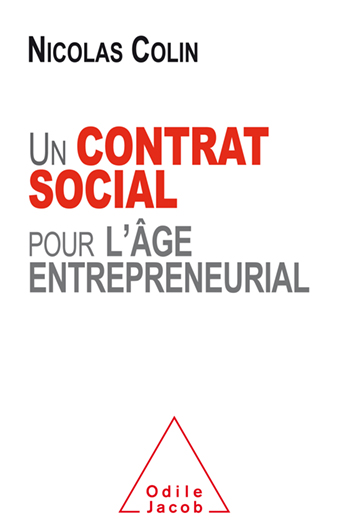
Nicolas Colin
A Social Contract for an Entrepreneurial Age Our Happy Days
Trained at the École Normale d’Administration and active in the digital world where he is a well-known figure, Nicolas Colin has an atypical profile, very popular among the media.
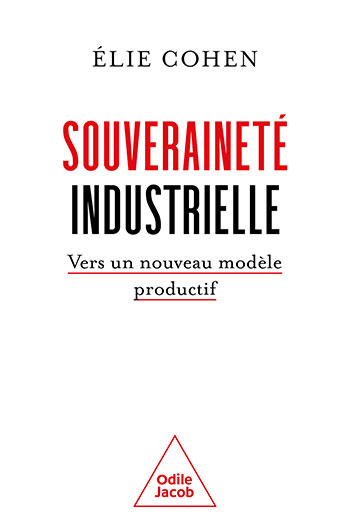
Élie Cohen
Industrial Sovereignty
How can we escape our economic dependency and regain our industrial sovereignty? What substance should be given to this “strategic autonomy” that the French and the Germans henceforth hope will be achieved?
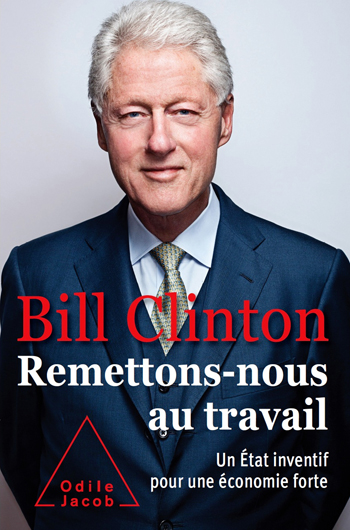
Bill Clinton
Back to Work Why We Need Smart Government for a Strong Economy
“There is simply no evidence that we can succeed in the twenty-first century with an antigovernment strategy,” based on “a philosophy grounded in ‘you’re on your own’ rather than ‘we’re all in this together.’ ” Bill Clinton

Jean-Marie Chevalier, Patrice Geoffron
Energy Transitions Making the Right Choices
French leaders need to make the right energy choices — if they don’t the current economic crisis will only become worse

Gilbert Cette, Jacques Barthélémy
Reconstructing Social Law to Reform How the Labour Market Functions
French social law, and particularly labour law, is characterised by an excess of rules and regulations that hinder economic growth and job creation. In this respect, France is an exception among European nations.
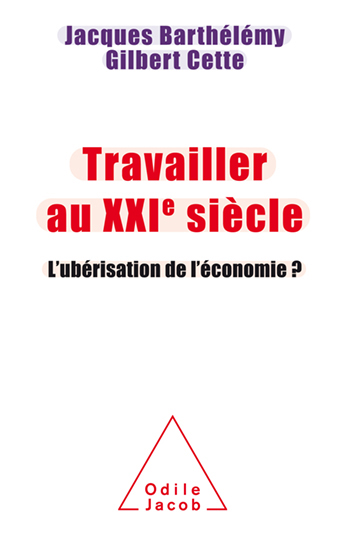
Jacques Barthélémy, Gilbert Cette
Working in the 21st Century The Uberization of the Economy
New labour laws for a new economy. Inevitable, but difficult to put into place, for the past year, labour-law reform has been at the heart of many key economic and political debates. Supported and co-published by two major think-tanks, Terra Nova and L’Institut de l’entreprise, this book will be heavily promoted.
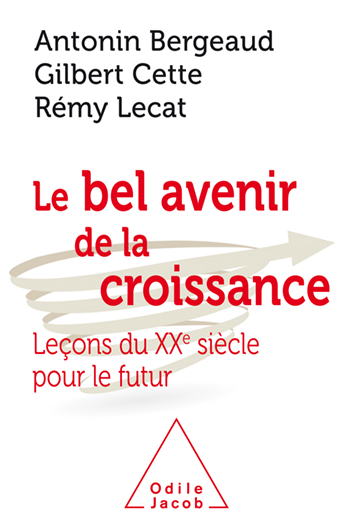
Antonin Bergeaud, Gilbert Cette, Rémy Lecat
The True Impacts of Growth Toward an Awakening?
A condensed look at what you should know to understand what is at stake in the current debate on growth
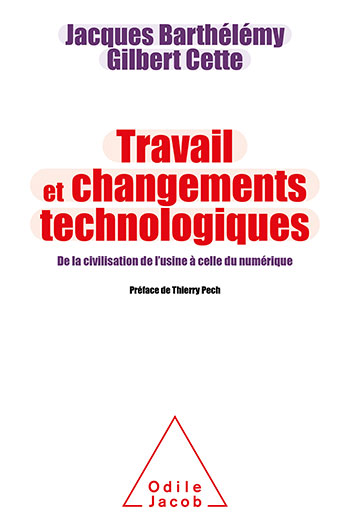
Gilbert Cette, Jacques Barthélémy
Work and Technological Changes From the Civilization of Factories to That of the Digital
Recent mutations in the world of work are an opportunity to seize in order to adapt the law to the most unprecedented situations.
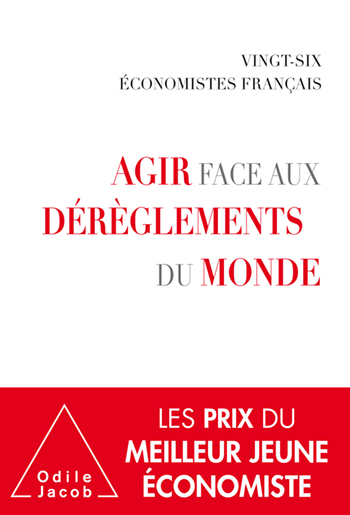
Le Cercle des économistes
The Disruptions in the World Acting to confront the disruptions in the world
Edited by Phillippe Aghion, professor at the Collège de France, and Jean-Marie Chevalier, emeritus professor at the University Paris-Dauphine.
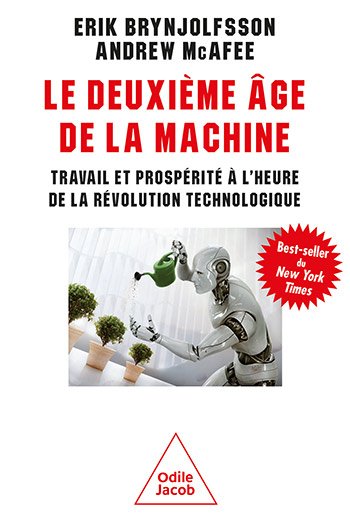
Erik Brynjolfsson, Andrew McAfee
The Second Machine Age Work, Progress, and Prosperity in a Time of Brilliant Technologies
A fundamentally optimistic book, The Second Machine Age will alter how we think about issues of technological, societal, and economic progress.

Erik Brynjolfsson, Andrew McAfee
Machine, Platform, Crowd: Harnessing Our Digital Future
How does the digital revolution enable a new integration between the human mind and machines?
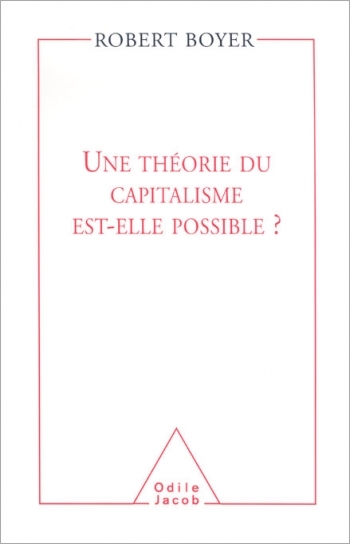
Robert Boyer
General Theory of Capitalism is it possible?
Robert Boyer is a leading figure of the regulationist school of economics, which believes that capitalism requires external, political, monetary and social regulations, and that the capitalist economy cannot be reduced to the self-regulating laws of the market. In this book, he proposes a general theory of capitalism, from two angles. First of all, he argues that there are several models of capitalism - not just one. America's ultra-liberal capitalism is unlike German capitalism, which is characterised by the fusion between banks and businesses, just as it is unlike French state-interventionist capitalism and Japan's capitalism of consensus. Secondly, in order to understand how capitalism works, every aspect has to be considered - not just the market but also political and social institutions (the State, central banks, unions, etc.) and the conventions they create among themselves (salary agreements, etc.). Robert Boyer is a research fellow at the Centre National de la Recherche Scientifique, a director of studies at the Ecole des Haute Etudes en Sciences Sociales and a member of the French prime minister's Council for Economic Analysis.

Raymond Boudon
Why intellectual peoples don't like liberalism
Given the intellectual force of liberalism, its political appeal, its economic effectiveness and its historical significance, why is it so unpopular among French intellectuals? Why does it elicit so little serious discussion? And why is it the object of so much confusion, so many clichés and misunderstandings? Is it simply out of resentment, because intellectuals feel that the market does not afford them the material and symbolic rewards that they believe they deserve? Is it just because they prefer to play a critical role in a society where capitalism is triumphant? Perhaps, but these reasons do not explain everything and they certainly dont explain the systematic rejection of liberal thought in France. A sociologist of knowledge rather than of social determinism, and a specialist in belief systems, Raymond Boudon ruthlessly analyses the cognitive mechanisms that make liberalism so hateful in the eyes of French intellectuals. The result is a keen, detailed review of the clichés that have encumbered discussions for more than thirty years. Raymond Boudon, a professor at the University of Paris-IV, is a member of the Académie des Sciences Morales et Politiques. He us the author of numerous works, most notably LInégalité des chances, La logique du social, LIdéologie ou lorigine des idées reçues, LArt de se persuader, Le Sens des valeurs and Déclin de la morale? Déclin des valeurs. He is the co-author, with R. Leroux, of Y a-t-il encore une sociologie?
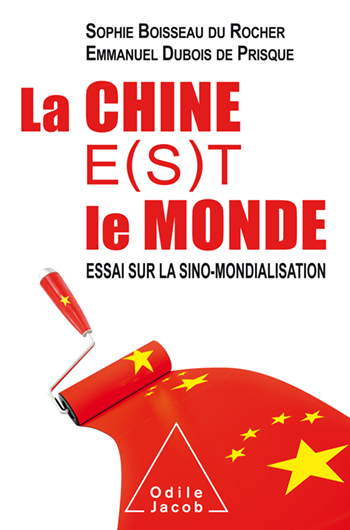
Sophie Boisseau du Rocher, Emmanuel Dubois de Prisque
China Is/and the World A Look at Sino-globalization
By stressing the gap between today’s international system and what it would be in the event of Chinese hegemony, we will understand better what is at play, and what is lost, with the “de-Westernization” of the world.
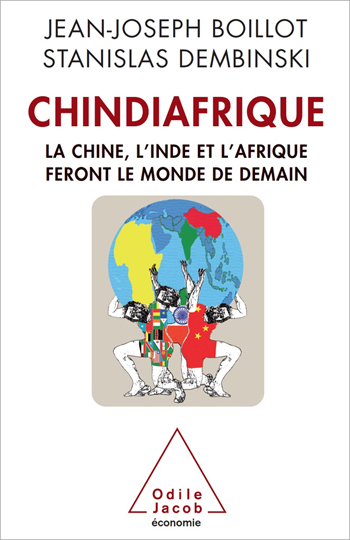
Jean-Joseph Boillot, Stanislas Dembinski
Chindiafrique The Three Giants That Will Make Tomorrow’s World
An indispensable essay on future economic trends for anyone wishing to understand tomorrow’s world


